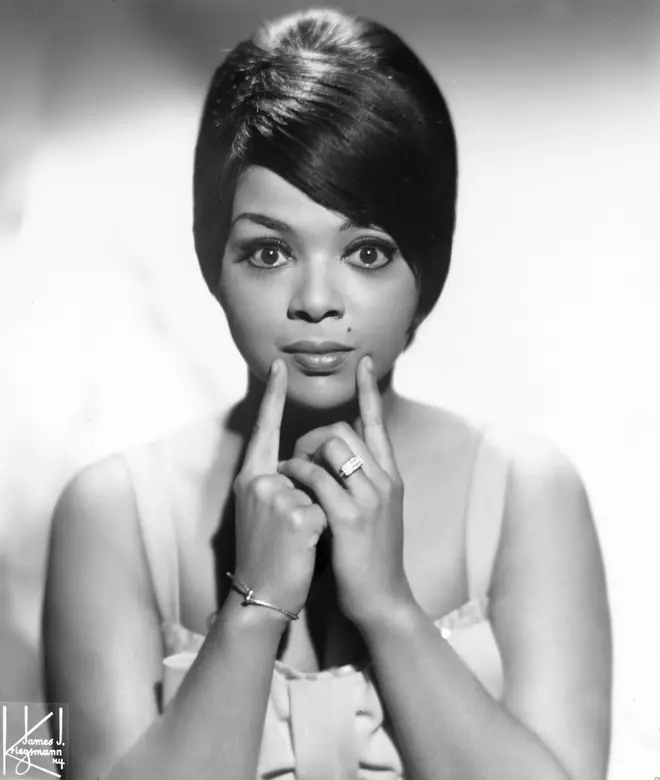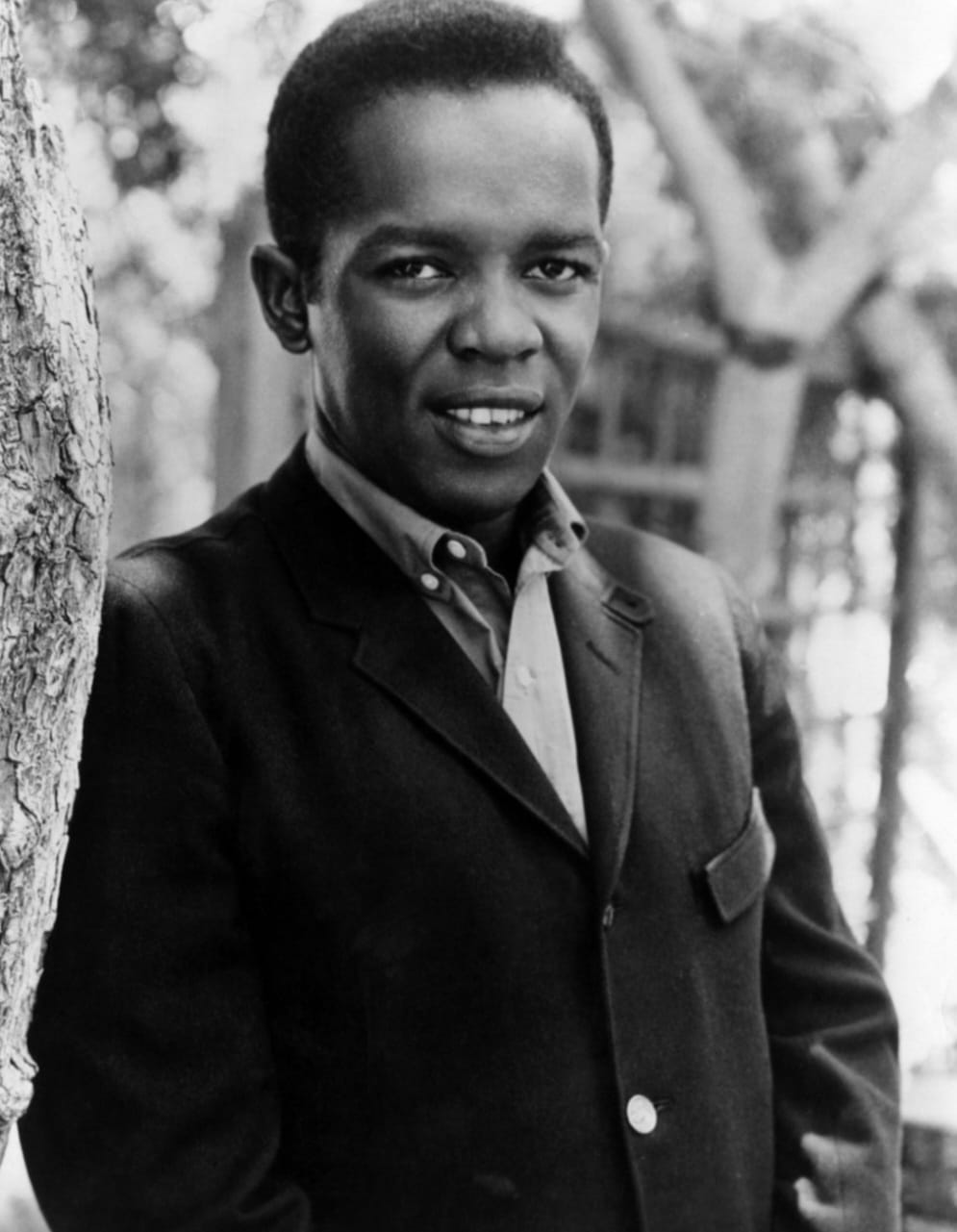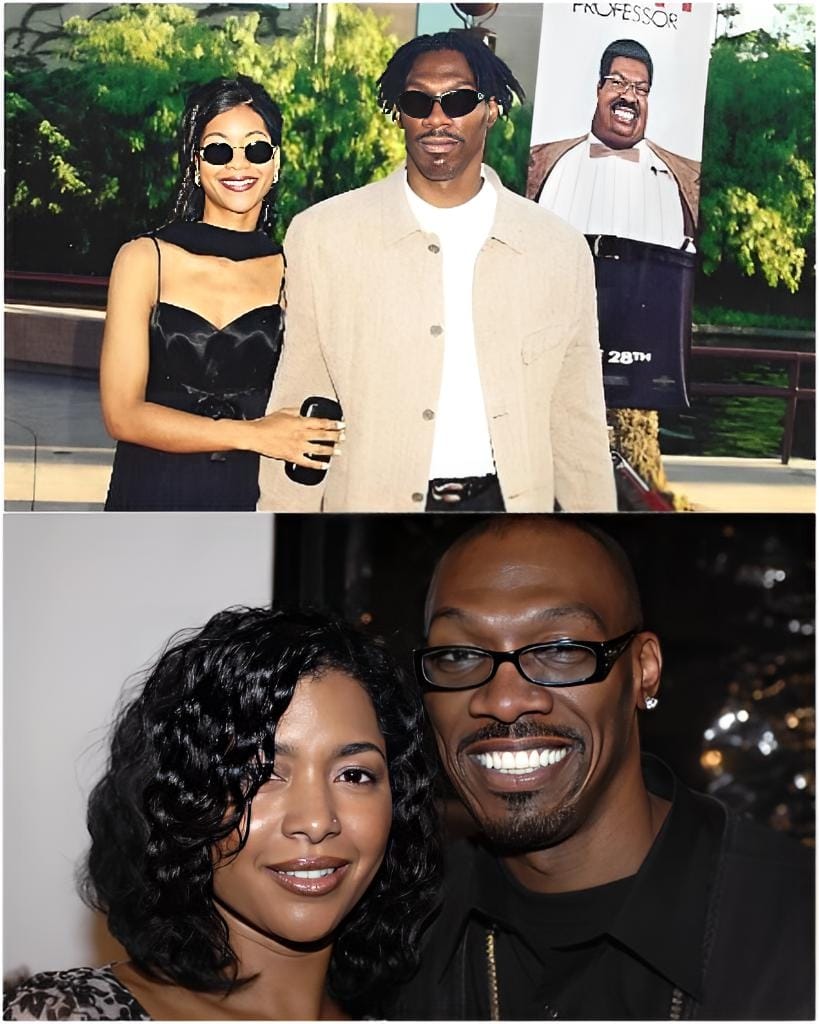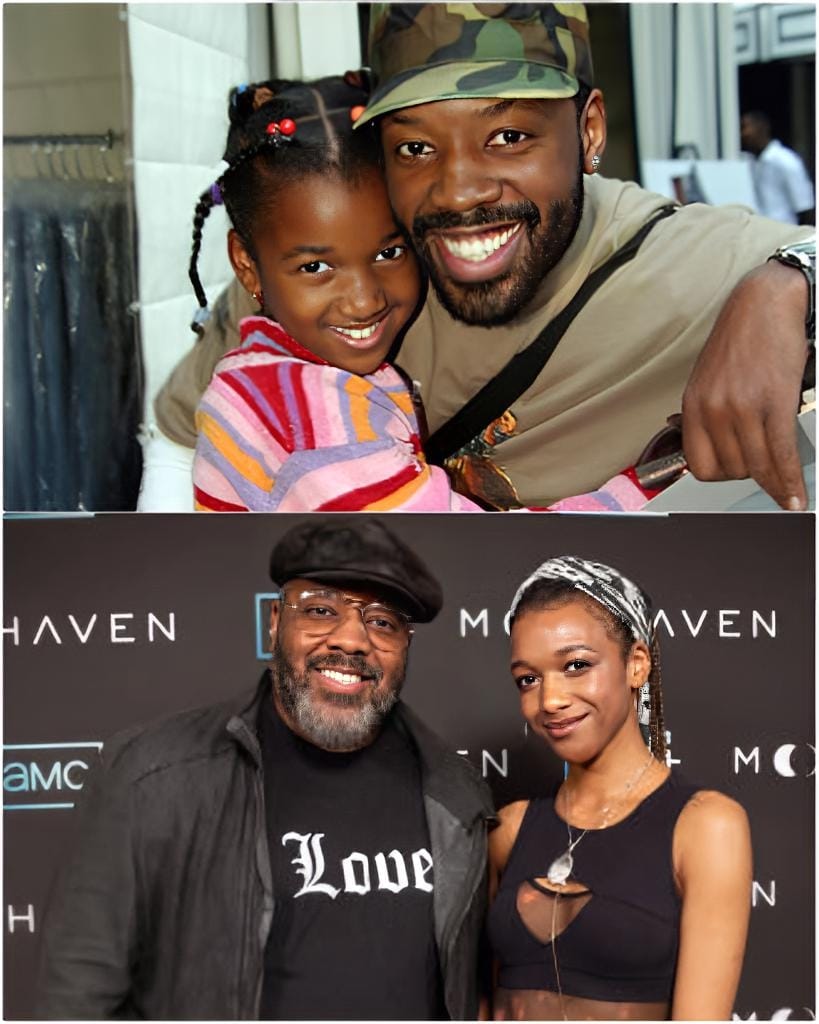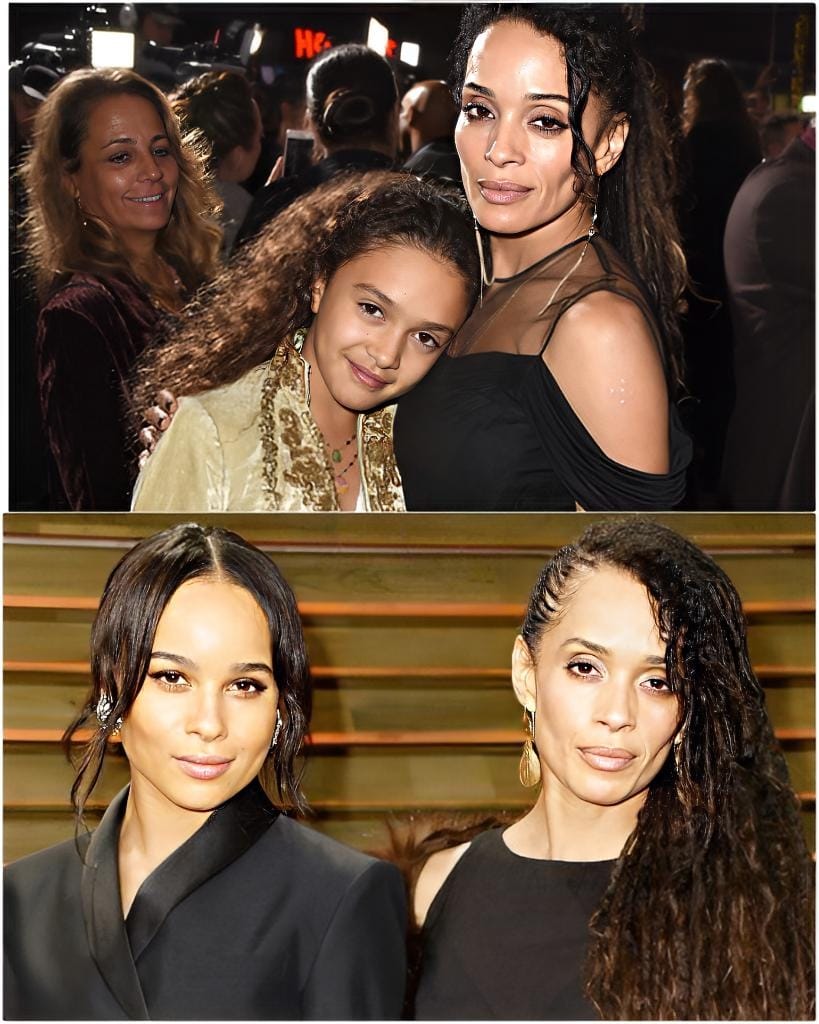Jane Austen: 1775 – 1817
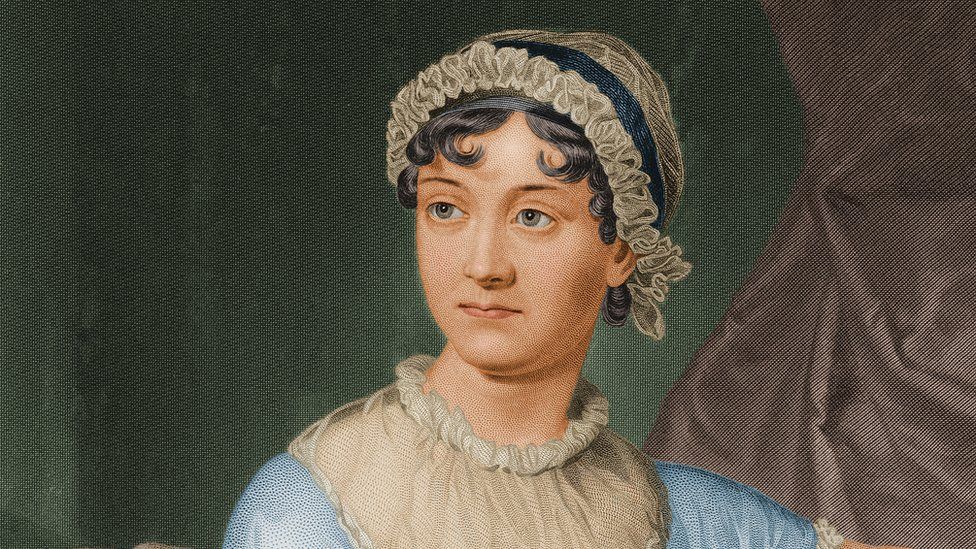
IMAGE SOURCE,GETTY IMAGES
Let’s start with a literary figure who has had more influence on British culture than she would ever have known during her relatively short life (she sadly died at the age of 41).
Jane Austen started putting pen to paper when she was just a teenager and went on to write six major novels which revealed what life was like in the late 1700s and early 1800s. Four of them were released within just four years of each other! That’s some seriously rapid writing.
These were Sense and Sensibility, Pride and Prejudice, Mansfield Park, and Emma. Northanger Abbey and Persuasion were published after she died – and they are loved all over the world. There was actually a seventh and final novel, but sadly she never got to complete it.
While she was alive, she actually published her books anonymously, so nobody knew her as a writer. It is widely accepted that she never got the credit she deserved until after her death.
Now, just over 200 years since she died, millions of people carry Jane around in their pockets every single day. That’s because her face was on the £10 note as a way of marking just what an enormous impact her work has centuries later.

Florence Nightingale: 1820 – 1910
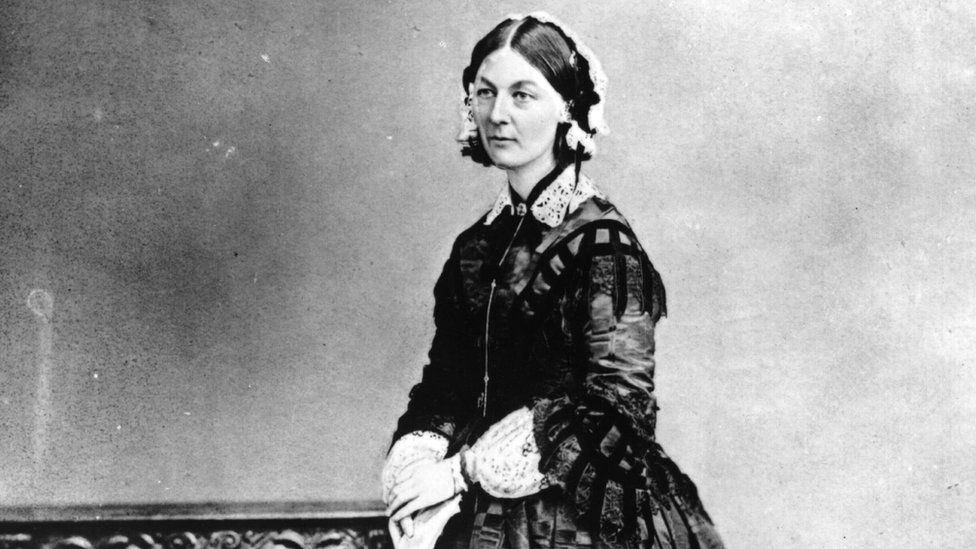
IMAGE SOURCE,GETTY IMAGES
If there was ever a true hero who dedicated her life to helping others, Florence Nightingale is it. Born in Italy in 1820, Florence went against what was traditionally expected of her, by becoming a war-hero nurse.
She was 𝐛𝐨𝐫𝐧 in Florence – which was the inspiration for her name (fun fact!) – into a very wealthy family who frowned upon her entering into the nursing profession.
She moved to London to work before receiving a letter from the Secretary of War asking her to put a team together to go to work in a place called Crimea during the Crimean War, and look after British soldiers. This was the first time that women had been officially allowed to serve in the army.
The conditions there were terrible. For example, there weren’t enough beds, everything was filthy, there weren’t proper loos and there were rats everywhere.
When she first arrived in November 1854, the army doctors wanted nothing to do with her. But she wouldn’t go away and soon got to work cleaning up the awful conditions there. She quickly got the more able soldiers to work making them scrub the hospital clean.
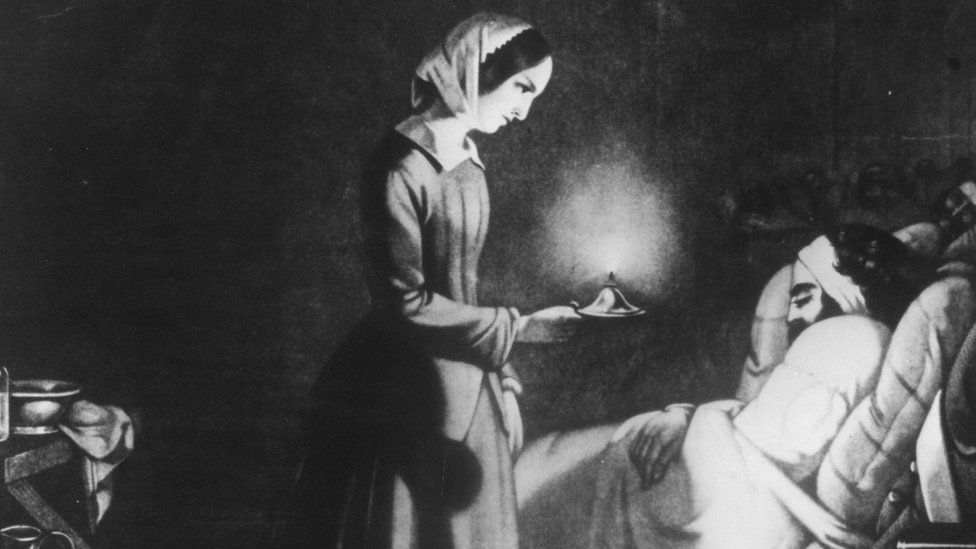
IMAGE SOURCE,GETTY IMAGESImage caption,She became known as the lady with the lamp, because she used to carry a lamp around at night while she checked on the soldiers
She used to walk around the hospital at night to make sure the poorly soldiers were comfortable. This is how she became known as the lady with the lamp.
She was welcomed home a hero. Even Queen Victoria wrote her a letter to say thank you for what she’d done. It’s not every day that you get a thank you letter from the Queen!
Florence Nightingale completely transformed the quality of care in war and went on to improve healthcare all over the world, so that’s a pretty amazing legacy to leave.

Emmeline Pankhurst: 1858-1928
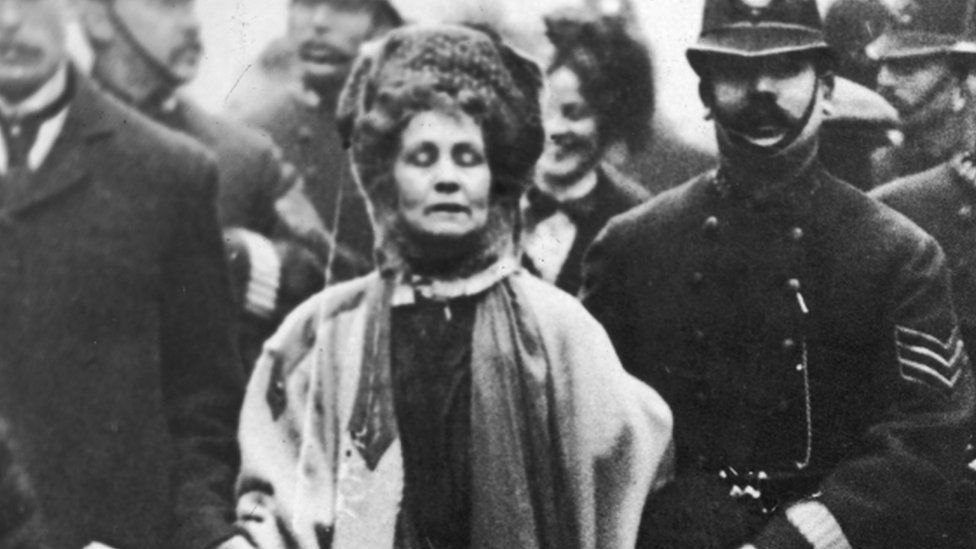
IMAGE SOURCE,GETTY IMAGES
Emmeline Pankhurst was a founding member of a group of women called the Suffragettes, who fought incredibly hard to get women the right to vote in the UK.
They often used violent and extreme tactics to do this, and Emmeline was no stranger to a prison cell because of this.
When World War One broke out, however, she recognised that she should help with the war effort, and she encouraged other Suffragettes to do the same.
While the men were away fighting in the war, many women like Emmeline took on jobs that men would traditionally do. They earned lots of respect doing this and it showed just how much women contributed to society – and, therefore, deserved the vote.
In 1918, a law was passed which allowed certain women the right to vote. This was a big step in equality between men and women – and many would argue that, for a large part of this, we have Emmeline to thank.

Marie Curie: 1867 – 1934
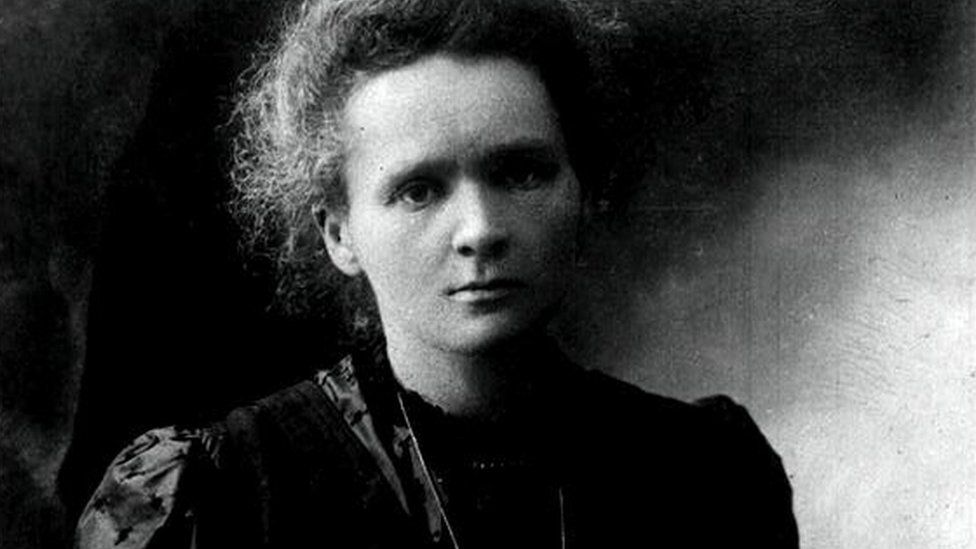
IMAGE SOURCE,PA
Marie Curie was a Polish scientist – and is probably one of the most famous scientists of all time. She was 𝐛𝐨𝐫𝐧 in the Polish city of Warsaw, but later moved to France where she made an incredible discovery which would change the world.
In France, she met her husband – a man called Pierre, who was also a scientist. Together, they built on work done by previous scientists and made discoveries which would earn them a Nobel Prize in 1903.
As if that wasn’t enough, Marie went on to win another Nobel Prize in 1911. She was the first woman in history to win it.
So what was this amazing work? Well, the Curies made ground-breaking discoveries about something called radioactivity. Radioactivity happens when certain special chemical elements give off energetic particles when a part of them called their nucleus breaks down.
This all sounds rather technical, but through this work, the Curies announced the discovery of two new chemical elements – polonium and radium.
And why was that so important? Well, first of all, their work was used to develop something called radiotherapy, which is used to treat certain illnesses.
These discoveries were also really important in developing X-rays, which are vital in hospitals today. It also meant that during World War One, Curie was able to develop a portable X-ray unit that could be used near the battlefront.
So if you ever find yourself in hospital having an X-ray, you now know who you should be thanking.

Coco Chanel: 1883 – 1971
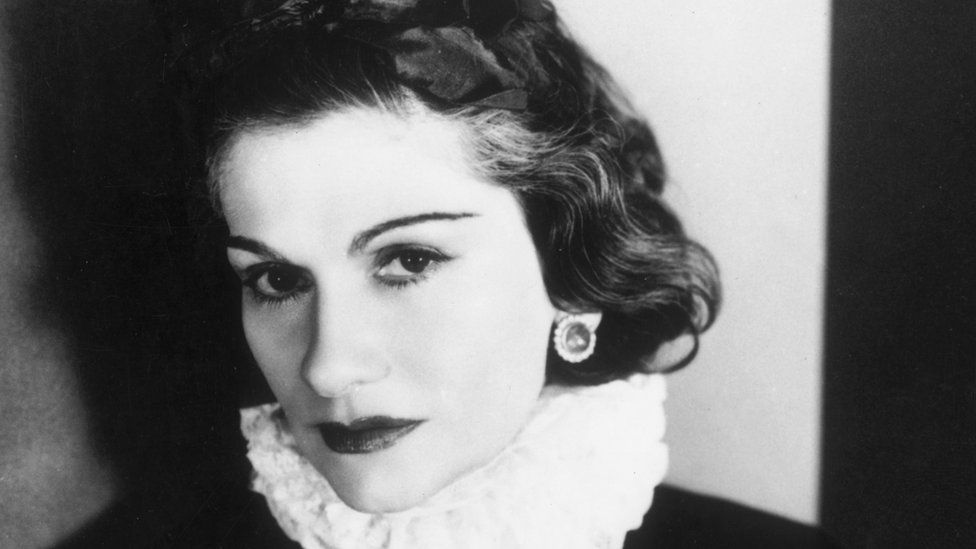
IMAGE SOURCE,GETTY IMAGES
From science to one of the most iconic brands in the fashion world – Coco Chanel was a woman who changed the face of fashion forever.
She was 𝐛𝐨𝐫𝐧 in France and taught herself to sew at a young age – something that would certainly come in handy later on!
She opened her first shop in the early 1900s, starting off by designing hats. She soon turned her attention to clothes too and, by the 1920s, launched her first perfume.
Ever heard of the saying the ‘little black dress’, also known as the LBD? Yep, you have Coco Chanel to thank for that.
She led the way in luxury fashion and today her brand – led by its creative director Karl Lagerfeld – sells clothes, perfume, handbags and watches. Almost 100 years after it was first created, Chanel No 5 is still probably the world’s most famous perfume!
All from one hat shop, Chanel is now worth billions of pounds, so it’s safe to say she had one heck of an impact!

Katharine Hepburn: 1907 – 2003
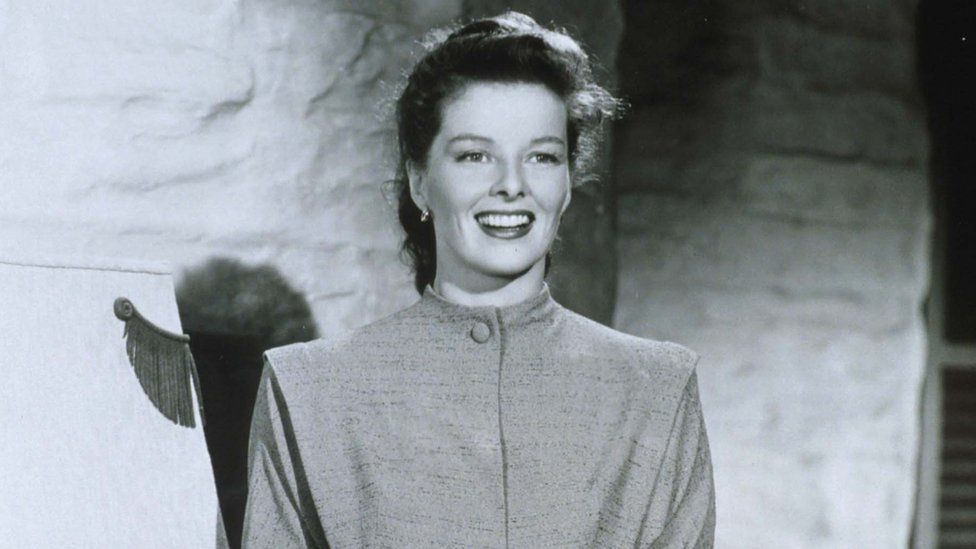
IMAGE SOURCE,GETTY IMAGES
Katharine Hepburn was quite the fashion icon, but one of the main ways that she left her mark was by changing the idea of what people believed it was to be feminine.
One way that she did this was by challenging how women were supposed to dress. In Hollywood in the 1930s and 1940s, it was more usual for women to wear dresses and skirts. But no, Katharine liked to wear trousers and she became very well known for this.
She was an extremely independent woman and took control of her own acting career – again, something that wasn’t very usual for women at that time.
She once said: “I’ve had a pretty remarkable life, but compared to my mother and father, I’m dull.” Well, Katharine, we – and millions of others – think you were anything but.

Mother Teresa: 1910 – 1997
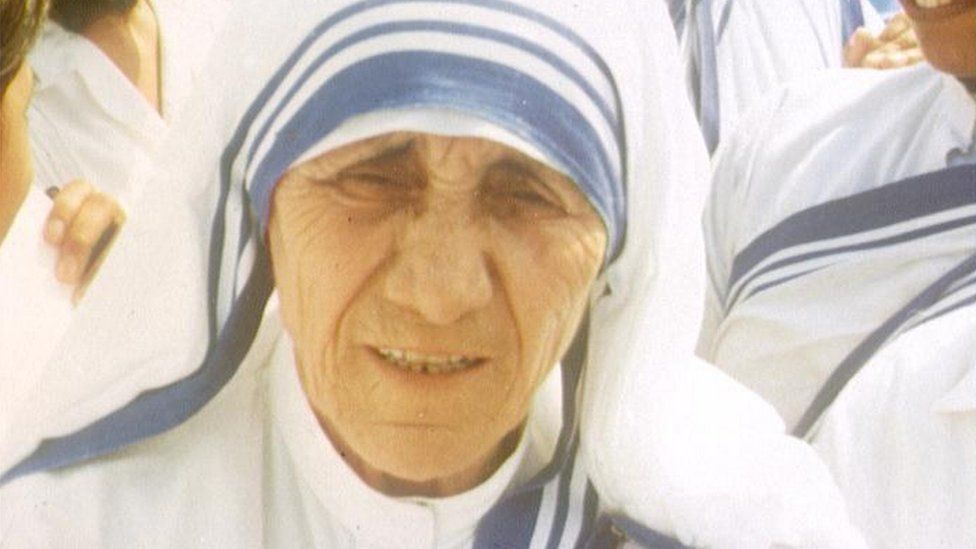
In September 2016, it was announced that Mother Teresa was being named as a Saint – so she is certainly deserving of a place on this list.
At the age of 12, Teresa – who was a Roman Catholic – decided that she wanted to go to India to spread the Christian message and help people.
So this she did. In 1929, she travelled to India and she ended up dedicating her life to helping poor people, particularly in the Indian city of Kolkata. She described her work as God’s work.
While she was there, she started something called the Missionaries of Charity. This group now has thousands of people in almost 90 countries helping people living in poverty all over the world.
In 1979 she received the Nobel Peace Prize for her work. She asked that the big dinner to mark this was cancelled and all of the money given to the poor people of Kolkata.
It is said that she only had two possessions of her own – a bucket and two saris. To this day, she is remembered by how much she loved and cared for people, and praised as a Saint.

Margaret Thatcher: 1925 – 2013
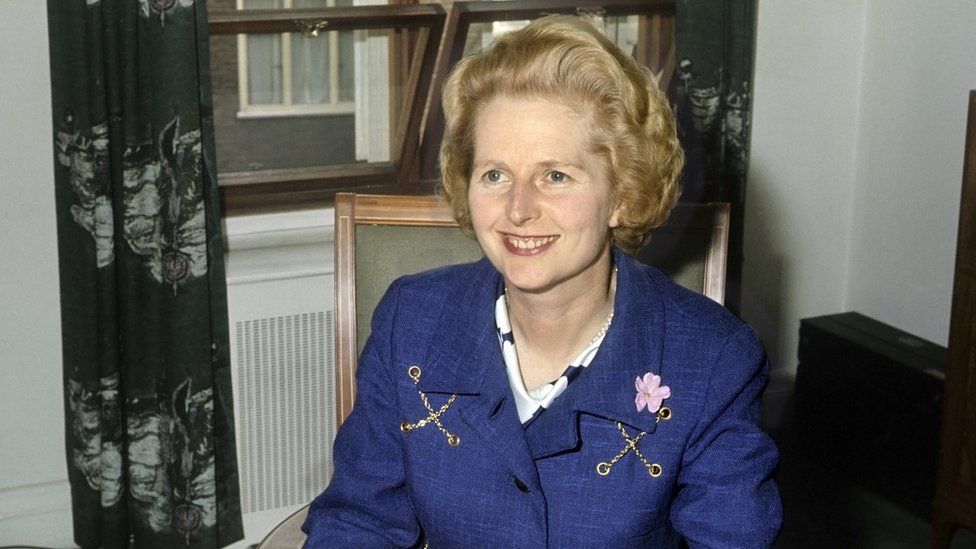
Margaret Thatcher changed the face of modern British politics.
She started her political career at Oxford University where she was president of the Conservative Association. She later ran for parliament to represent Dartford, but she lost out twice to her Labour rival.
In 1959, though, she won the parliamentary seat in Finchley and became Margaret Thatcher MP.
But she really made history in 1975 when she became leader of the Conservative Party – one of the two major political parties in the UK – and later, in 1979, the first female British Prime Minister.
She had some pretty radical views and even earned herself the nickname the Iron lady. She was forced to quit in 1990, but not before she’d become the longest continuously serving prime minister of the 20th century.
As with most political figures, some people loved her, while others didn’t. Some thought she saved Britain when it was having many economic problems. Others thought she ruined the lives of millions of workers.
Whatever people think, there’s no question that her strong-mindedness certainly meant she left her mark on British politics.

Queen Elizabeth II: 1926 – 2022
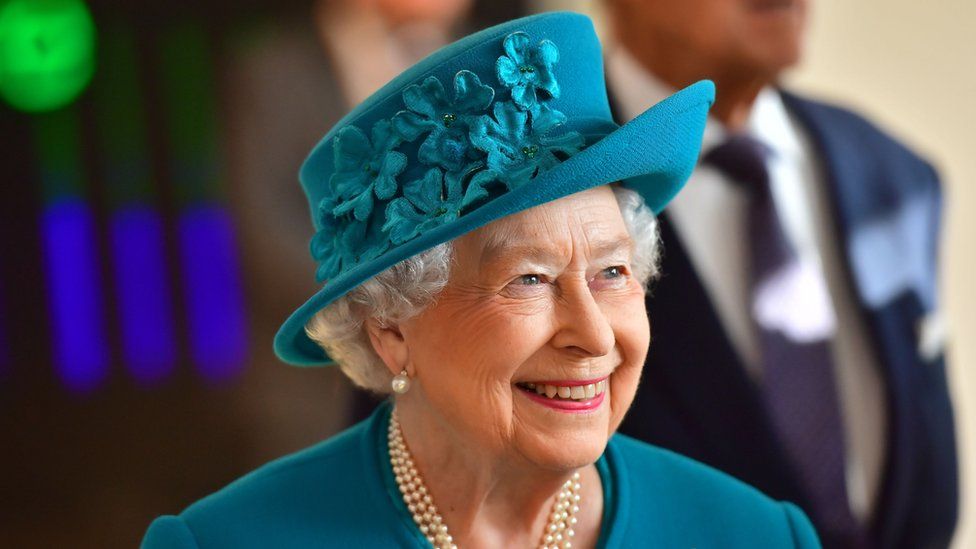
IMAGE SOURCE,PA
Her Majesty is incredibly deserving of her place on a list of women who have left their mark on the world.
She was the Britain’s longest serving monarch – sitting on the throne for more than 70 years. She saw the country through good times and bad, as well as sitting with 14 different prime ministers.
She was just 25 years old when her father died and the crown was passed on to her – and she has was in the public spotlight almost every day of her life.
The Queen had many important jobs, including being Head of the Commonwealth, Head of the Church of England and Head of the Armed Forces.
She also carried out many extremely important duties like officially opening parliament once a year. As Queen she had two 𝐛𝐢𝐫𝐭𝐡days a year.
The Queen worked incredibly hard throughout her life and made British monarchy history.

Kamala Harris: 1964 – present day
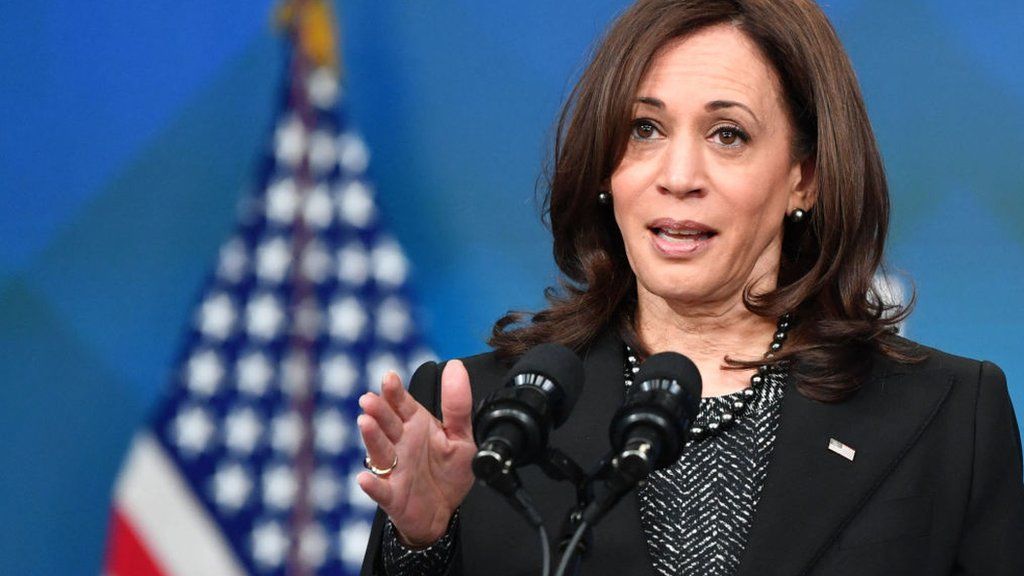
IMAGE SOURCE,GETTY IMAGES
One woman whose name you will probably have heard many times over the last two years is Kamala Harris.
That’s because she made history back in November 2020 when she became the first woman vice president of America and the first black and South Asian American to take on that job.
In 2019, she launched her own campaign to become the Democratic Party’s nominee, which means Harris put herself forward to be selected by the Democratic party to stand as president. While she did not win the presidential race, she was chosen by the Democratic candidate Joe Biden to be his vice president and running mate in the 2020 election! The pair won and she inspired millions of girls and women all over the world.
On 20 January 2021, Harris was inaugurated as vice president alongside then president elect, Joe Biden. Kamala then became the most senior woman politician in US history.
She has spoken out on issues such as the criminal justice system, police brutality, and racism..
Like a lot of political figures, Harris has received both criticism and praise. But many feel Kamala has shown it’s possible to thrive in male dominated environments.

Oprah Winfrey: 1954 – present day
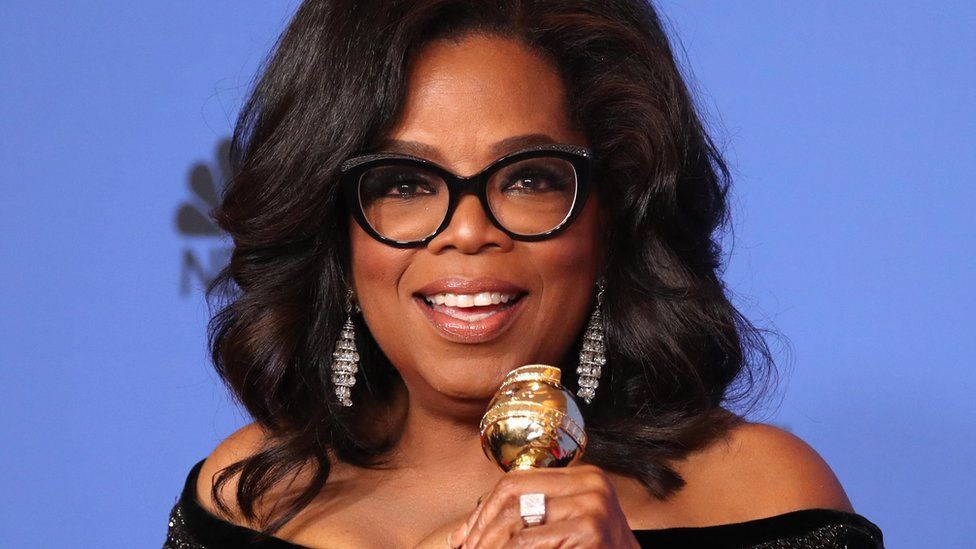
IMAGE SOURCE,REUTERS
One woman who is rarely away from the headlines is media legend Oprah Winfrey.
She started off her TV career when she was just a teenager, becoming the youngest person – and first African-America woman – to read the main news on a channel in the city of Nashville in America at the age of 19.
Now, she is the one of the world’s most famous and most-loved interviewers.
She first became famous in 1986 with the Oprah Winfrey Show. It ran for 25 years before she turned her success into her own TV channel – the Oprah Winfrey Network.
She has also done a huge amount of charity work, including setting up two of her own foundations and donating millions of her own money.
Some people think that after giving powerful speeches over the years and her charitable work, she should run to be the next US president. Whether or not she will do that, only Oprah knows.

Jessica Ennis-Hill: 1986 – present day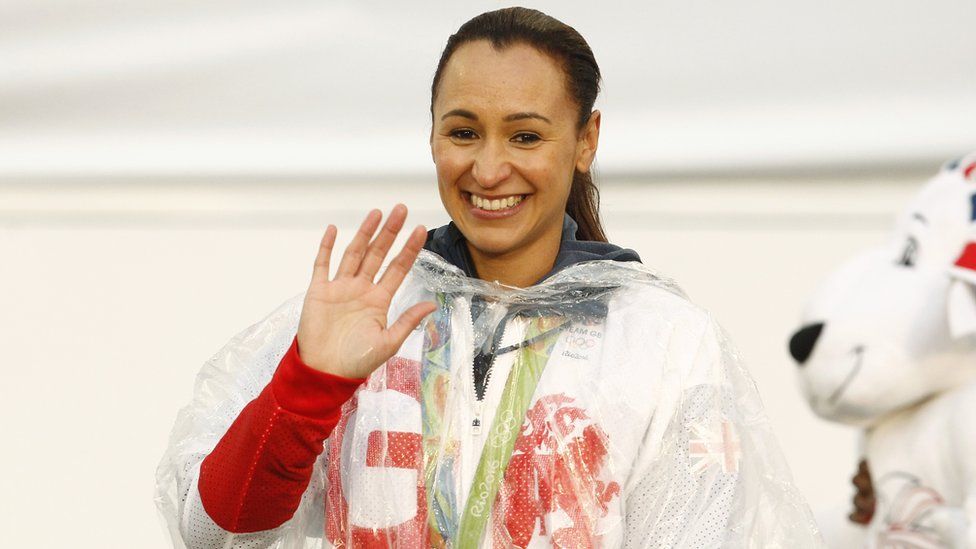
IMAGE SOURCE,REUTERS
Many of us will have sports stars who we massively look up to. Jessica Ennis-Hill is one of those stars who inspired millions of people during the London 2012 Olympics.
She first got into athletics at school and took home her first official medal from the Commonwealth Games in Australia, back in 2006. This was to be the first of many medals to come and just three years later, she got her her first gold medal in the 2009 World Championships in Germany.
But it was the London 2012 Olympics that really secured her spot in the history books.
Jessica was named as the main face of the Games in the run-up to the Olympics, so she starred in adverts and lots of campaigns promoting the event. Her face was plastered on billboards and screens up and down the country.
So you’d have thought the pressure might have got to her – but not a bit of it. Jessica went and won gold in the heptathlon, before going on to win silver in the Rio Olympics just four years later.
Not long after, she announced her retirement from athletics and was deservedly made a Dame in 2017’s New Year’s Honours.

Malala Yousafzai: 1997 – present day
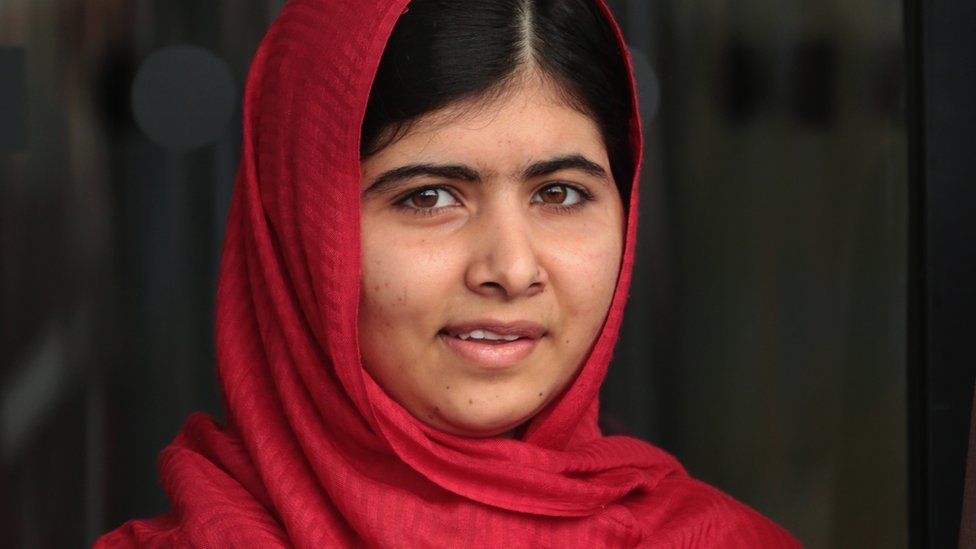
IMAGE SOURCE,GETTY IMAGES
Malala became one of the most famous schoolgirls in the world.
As a young girl of 11, the Pakistani student wrote an anonymous diary about what life was like under the rule of an extreme group called the Taliban in north-west Pakistan.
In the diary, she talked about how she wanted to stay in education and about how girls should be able to go to school. The Taliban wanted to ban girls’ education. Lots of people read the diary all over the world and she became well-known for fighting for her right to an education.
But the Taliban didn’t like this. Because of what she said in her diary, in October 2012, she was shot by their soldiers – but she survived the attack.
The world was appalled by what happened to her and Malala quickly won the support of millions more people.
At 14, she became the youngest person ever to win the Nobel Peace Prize. When she received it, she joked that she was probably the first winner who still fought with her younger brothers!
She has gone on to write books, graduate from university and continues to campaign for girls’ rights all over the world and inspire many generations.
